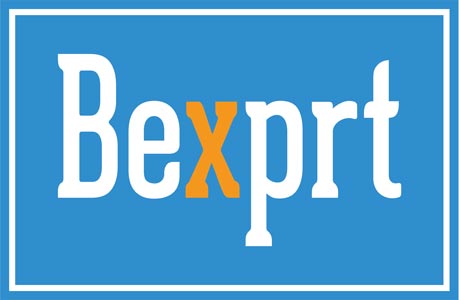eCommerce: optimizing for growth, minimising for risk
Big numbers, big opportunities
According to their comprehensive report “The future of e-commerce in the Middle East and North Africa: examining the key drivers of growth”, Medialinks predicts that the Middle East eCommerce market is estimated to grow with a compound annual growth rate of 15 per cent in 2023 as compared to 2021. Meanwhile, Frost & Sullivan estimated the Middle East eCommerce market will reach $20 billion in 2023. This growth is being driven by increasing internet penetration (over 200 million by 2023), growing use of digital payment methods, and a growing preference for online shopping among consumers (mobile commerce or m-commerce is set to play a significant role in the eCommerce and digital marketing space in 2023).
Such a promising forecast for 2023 eCommerce businesses in the Middle East, encouraged many entrepreneurs to build their own eCommerce startups to aggressively compete with big players in this domain. Nevertheless, there are many challenges that need to be taken into consideration to ensure sustainable growth.
One of these challenges is the expected recession in 2023. According to Forbes there is a chance of 70% that the global economy is expected to slow down due to a variety of factors such as rising trade tensions and geopolitical uncertainties. This could have an impact on consumer spending and could lead to more cost reductions for eCommerce platforms to maintain competing prices for online products and services.
Mitigating risk
To mitigate such a risk, entrepreneurs should focus on leveraging cloud-based eCommerce platforms that are hosted on reliable cloud providers such as Amazon Web Services (AWS), Google Cloud Platforms (GCP), Microsoft Azure, Alibaba Cloud etc. Cloud-based eCommerce platforms offer scalability and cost efficiency on a secure, reliable, and resilient infrastructure as compared to traditional hosting solutions. Moreover, they provide eCommerce platforms with access to advanced services such as real-time analytics (for better customer preferences visibility) and automated inventory management (for optimized operations).
Entrepreneurs though should be cautious enough to avoid hosting their eCommerce platforms on low profile-limited support cloud providers which may be prone to security threats for their sensitive data. Trusted cloud providers like AWS, GCP and Azure on the other hand can help businesses protect their data from cyber threats that are becoming increasingly common in the digital age. They provide robust security measures such as encryption technology and multi-factor authentication which can help protect customer data from malicious actors.
eCommerce platform selection considerations
Choosing the right cloud provider can often be a major milestone for entrepreneurs when assisting ecommerce platforms – Shopify and Salla are typical examples for cloud-hosted ecommerce platforms.
Shopify is one of the most popular eCommerce platforms in the world, with over 1 million active stores worldwide. It offers an extensive range of features for businesses, including an intuitive drag-and-drop website builder, powerful analytics tools, and integrated payment solutions. Shopify also provides access to its own app store, allowing users to extend their store’s functionality with third-party apps and services.
Salla is a relatively new player in the eCommerce as a service space, but it has quickly become one of the leading providers in the Middle East region. It offers all of the features that Shopify does, but it also includes additional features tailored specifically for Middle Eastern markets such as multi-language support and local payment options. Additionally, Salla provides access to its own marketplace where users can list their products for sale directly on Salla’s platform.
Both Shopify and Salla offer similar advantages. Both platforms provide scalability and flexibility that allow businesses to quickly scale up or down depending on their needs. Additionally, both platforms offer robust security measures that protect customer data from malicious attacks or data breaches. Finally, both platforms are cost-effective solutions for businesses looking to launch an online store without having to invest heavily in infrastructure or personnel costs associated with running an online store from scratch.
eCommerce & well-architected framework
Careful consideration should be given to hosting such eCommerce platforms on a scalable, secure and cost-efficient infrastructure implies careful and professional adoption for best architecture practices known in AWS as WAF or well-architected framework.
In general, you will need storage for your web content such as images; compute capabilities for processing transactions; a relational database that stores customer information; and a web application server that handles site requests from customers.
When setting up your cloud environment on AWS there are a few items that should not be overlooked – such as security protocols like encryption and multi-factor authentication – to ensure customer data is kept safe from malicious actors in addition to other measures such as firewalls to protect against attacks from outside sources.
Consideration should also be given to setting up metrics tracking with CloudWatch to monitor performance metrics like user engagement and page load times in real-time or near real-time so you can identify bottlenecks before they become an issue.
You need to configure auto-scaling rules so that computing resources can automatically adjust based on usage patterns or the number of customers accessing your website at any given time. Auto-scaling helps relieve strain during peak times while also maintaining fast page load times throughout the day without sacrificing performance.
The last step is testing out the platform before moving it into production mode. Try hitting different pages quickly with multiple test scripts running concurrently and look for any dropped requests or lags in response time compared to when running normally under regular traffic loads as well as any other performance/efficiency issues before officially launching your site publicly.
2023: a promising eCommerce future
In conclusion, the forecast for 2023 looks promising for eCommerce businesses in the Middle East provided they take steps to mitigate potential risks such as an expected recession by leveraging cloud-based eCommerce platforms hosted on reliable cloud providers like AWS. Such platforms offer scalability, reliability, cost savings, advanced features, and robust security measures which can help businesses stay competitive while protecting their customers’ data from cyber threats.
Many entrepreneurs prefer to partner with professional service providers (such as Bexprt) who can abstract all integration complexities and ensure that their business is growing organically with a scalable approach.
Get in touch if you would like to know more about how we can help your business.
Bexprt ◦ Your business enablement partner
Business Consulting ◦ Cloud Consulting & Services ◦ ICT Professional Services ◦ Cyber Security Services
image credit: @Nick Morrison




